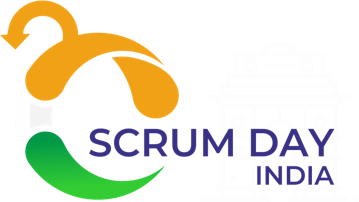10 Must-Read Books For a Product Management Career
While the role is inherently complex, success doesn't have to be a matter of guesswork. This curated list of ten books is more than a reading list; it’s a deliberate curriculum designed to reshape how you think and operate. We’ll begin with the foundational mechanics of building and learning, then move to communication and psychology, and finally expand to market strategy and disruption. These are the texts for building and communicating strategy itself, providing the frameworks needed to lead with confidence.
The Canon: 10 Essential Reads for Modern Product Leaders
This book introduces the core methodology of the Build-Measure-Learn feedback loop. Its purpose is to eliminate waste by iterating quickly, turning assumptions into facts through "validated learning" rather than building in isolation. The Minimum Viable Product (MVP) is the primary vehicle for this learning, allowing teams to gather empirical data from real customers with the least amount of effort.
While The Lean Startup establishes the principle of validated learning, The Mom Test delivers the practical toolkit for executing it. The book’s premise is simple but profound: how to ask questions that prevent people—even your own mom—from lying to you. It teaches you to avoid biased feedback by focusing on your customers' real-life problems, not their opinions on your solution.
Steve Krug's book is a foundational text on web usability whose principles apply to any product interface. The core argument is that a product should be obvious and self-explanatory, minimizing the user's cognitive load. Users shouldn't have to think about how to use your product; they should just be able to use it.
Sprint outlines a structured, five-day process for solving big problems and testing new ideas. The framework guides a cross-functional team from an initial concept to a realistic, high-fidelity prototype that can be tested with real customers, all within a single work week.
Hooked deconstructs the psychology behind the world's most habit-forming products. It introduces the "Hook Model," a four-step process—trigger, action, variable reward, and investment—that companies use to create products users return to again and again without conscious thought.
This framework teaches you how to communicate your value by making the customer the hero of a story. The StoryBrand framework applies seven universal story points to simplify a brand’s message, positioning your product not as the hero, but as the trusted guide.
If Building a StoryBrand gives you the template for how to tell your story, Obviously Awesome provides the systematic process for figuring out what that story is. April Dunford demystifies the "dark art" of product positioning, arguing that it’s not an accident but a structured process of finding a product's unique "secret sauce" and connecting it to the market that will care most.
Clayton Christensen’s classic work explains the theory of disruptive innovation—why well-managed, successful companies often fail when confronted with new technologies. He shows that these disruptions often start by serving overlooked niches with initially inferior products, only to improve and eventually capture the mainstream market.
This framework offers a proactive strategy for avoiding The Innovator's Dilemma altogether. Instead of reacting to disruption, it challenges product leaders to become the disruptors. The core idea is to create new, uncontested market space ("blue oceans") where competition is irrelevant, rather than battling for inches in existing, saturated markets ("red oceans").
This book is the essential companion to The Lean Startup, providing the practical measurement framework for the Build-Measure-Learn loop. It offers a clear methodology for choosing the right metrics based on your business model and stage, helping you distinguish actionable insights from misleading "vanity metrics."
While this list is not exhaustive, these titles provide a robust foundation for any product leader. They offer the tools to cut through the noise, make better decisions, and build products that customers truly need.
Now that you have the playbook, which foundational assumption about your product will you test first?



